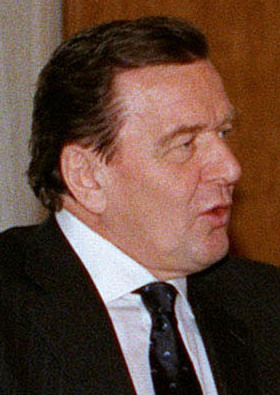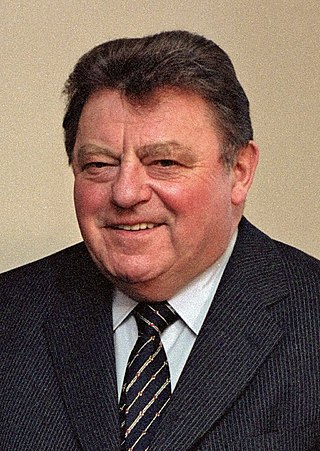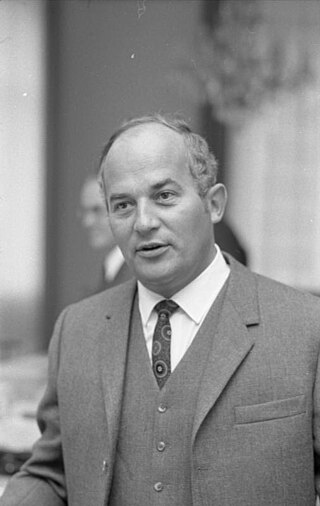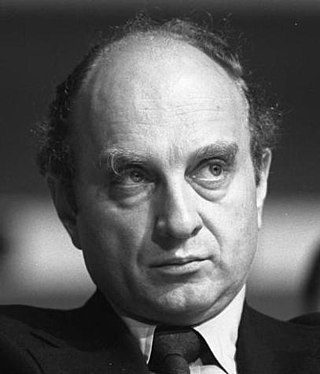Related Research Articles

The Free Democratic Party is a liberal political party in Germany.

Federal elections were held in Germany on 27 September 1998 to elect the members of the 14th Bundestag. The Social Democratic Party (SPD) emerged as the largest faction in parliament for the first time since 1972, with its leader Gerhard Schröder becoming chancellor. The Christian Democrats had their worst election result since 1949.

Federal elections were held in Germany on 16 October 1994 to elect the members of the 13th Bundestag. The CDU/CSU alliance led by Helmut Kohl remained the largest faction in parliament, with Kohl remaining Chancellor in a narrowly re-elected coalition with the Free Democratic Party (FDP). This elected Bundestag was the largest in history until 2017, numbering 672 members.

Federal elections were held in West Germany on 6 March 1983 to elect the members of the 10th Bundestag. The CDU/CSU alliance led by Helmut Kohl remained the largest faction in parliament, with Kohl remaining Chancellor.

Federal elections were held in West Germany on 5 October 1980 to elect the members of the 9th Bundestag. Although the CDU/CSU remained the largest faction in parliament, Helmut Schmidt of the Social Democratic Party remained Chancellor.

Federal elections were held in West Germany on 3 October 1976 to elect the members of the 8th Bundestag. Although the CDU/CSU alliance became the largest faction in parliament, Helmut Schmidt of the Social Democratic Party remained Chancellor.

Rainer Candidus Barzel was a German politician of the Christian Democratic Union (CDU). He served as the eighth president of the Bundestag from 1983 to 1984.

Otto Friedrich Wilhelm Freiherr von der Wenge Graf Lambsdorff, known as Otto Graf Lambsdorff, was a German politician of the Free Democratic Party (FDP). He was the German Federal Minister of Economics from 1977 to 1984, when he resigned due to corruption allegations.

CDU/CSU, unofficially the Union parties or the Union, is a centre-right Christian democratic and conservative political alliance of two political parties in Germany: the Christian Democratic Union of Germany (CDU) and the Christian Social Union in Bavaria (CSU).
Eberhard von Brauchitsch was a German industrial manager. In his work for Flick KG, he was responsible for the donation of about 26 million Deutsche Mark to all the major German political parties and their associated foundations between 1969 and 1981. As a result of this scandal, he was sentenced to 2 years imprisonment on probation and 550,000 DM financial penalty for tax evasion. In 1982 he became a lawyer and management consultant.
References
- ↑ Girling, John (1997). Corruption, Capitalism and Democracy. routledge. p. 17. ISBN 0-415-15206-2.
- 1 2 "War Games". www.multinationalmonitor.org. Retrieved 11 October 2015.
- 1 2 "- Die "fünfte Gewalt"". Deutschlandradio Kultur (in German). Retrieved 11 October 2015.
- ↑ "Was hat Kohl mit Flick zu tun?". ZEIT ONLINE. Retrieved 11 October 2015.
- 1 2 Kremp, Herbert (12 September 2010). "Ein deutscher Europäer". Welt Online. Retrieved 11 October 2015.
- ↑ "Das Parlament, Nr. 11 2006, 13.03.2006 - Streit um die gekaufte Republik". webarchiv.bundestag.de. Retrieved 11 October 2015.
Also:
- Gregor, Neil (1997). "Big Business, Barbarism and Benefaction: The Flick Affair". Patterns of Prejudice. 31 (2): 51–58. doi:10.1080/0031322X.1997.9970223.
$DTE$